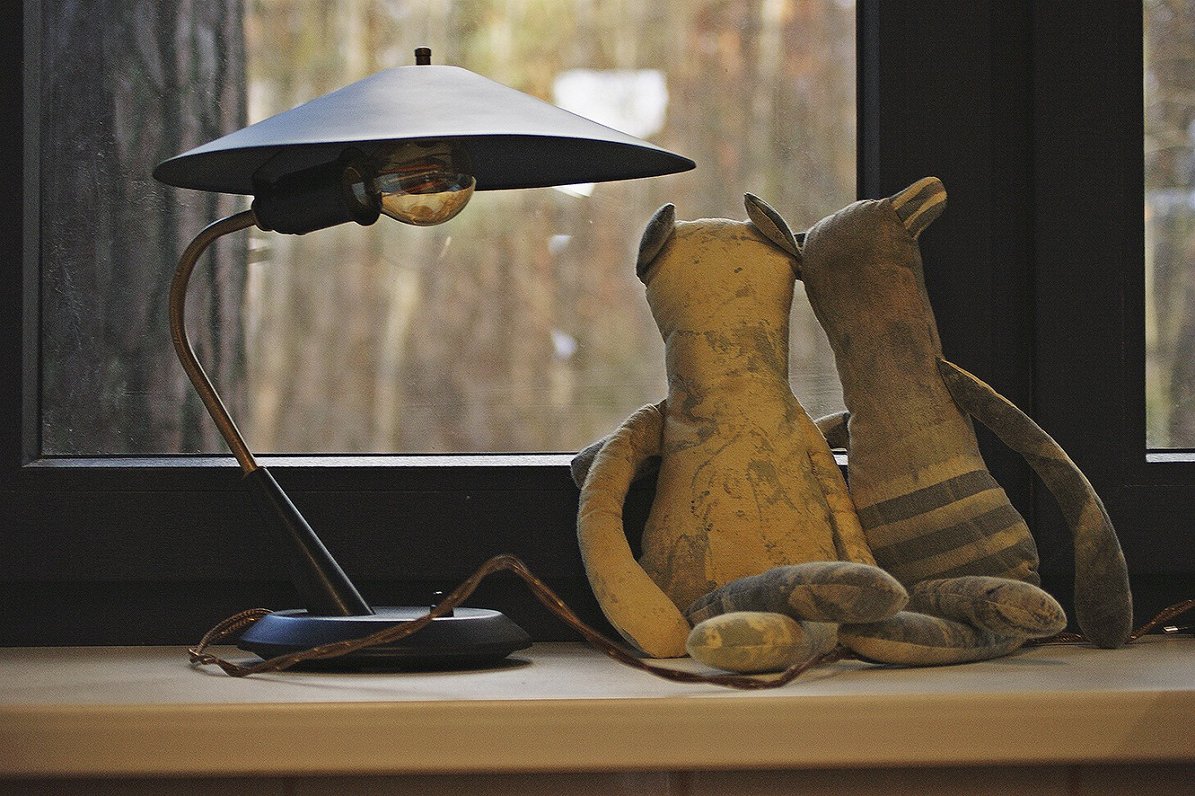From teens to adults
A small group of teenagers with their basketball coaches arrived in Valmiera in early March, with the idea to live in dormitories for a maximum of a couple of months. But the situation has dragged on, and many have not met their parents for close to a year.
The 14-year-old Darya from Odesa and 15-year-old Anna (Anya) from Kyiv live in one small room. Anya experienced the first ten days of the war in Ukraine. Darja arrived in Valmiera a little later.
"At the beginning of the war, I went to the countryside and there was utter horror. We lived for six days without light, water, heating. There was none of it. Not to mention Internet communications. But as soon as we were able to communicate, my coach Maria called me and said there was an opportunity to go to Latvia. That it's safe there and we can practice," said Anya.
Girls from all over Ukraine met with coaches in Poland, where they boarded one bus and went straight to Valmiera. The parents of both girls remained in Ukraine. They go to school in Valmiera, but acknowledged that the language barrier makes it difficult to get in, so they also learn in parallel remotely in Ukraine.
“We have Latvian classmates. Some of them speak Russian, but few do. For the most part, we are talking to each other. Teachers are trying to explain the topics to us,” Anya says, acknowledging that what they say in classes is not understood.
Although the girls have an appointed emergency guardian – the basketball coach, they not only study but prepare themselves food, clean, follow their own spending.
Anya: “It's a little complicated, but we're trying to cook ourselves.”
Darya: “We're getting by somehow.”
Anya: “Yes.”
Darya: “We cook, clean up after ourselves.”
Anya: “Yes. We help each other. We manage."
Ukrainian teens' guardian: It's not easy
In the dormitories in Valmiera, LTV also met Maria, the emergency guardian of the two girls in Latvia. She has three sons to take care of, and now another serious responsibility for six girls. The other six are in charge of the other coach, Marina.
Anya: “Without the coach, we don't have anyone here. No parents, no one.”'
Darya: “She's very helping, supporting and just being close.”
Anya: “Yes. Always. If anything happens, she'll help."
Maria said it was not easy. She rents an apartment with her sons herself and regularly visits the dorms.
“Yes, it's really not easy because they're kids. You know, teens who play all sorts of jokes with me. Those stories are different. For example, they lose their passport and how we searched for it! Thank God we found it! A lot of things happen. Hospital visits, plus I still have to check their school lessons. Moms are not here to look at the marks they received. Plus there is practice,” Maria said.
All the girls, according to the coach, were hurt most by the uncertainty of when they could go back to Ukraine and when they could meet their mom and dad. Their parents have banned them from returning for the time being because there are still bombings ongoing.
"There is no way to go home right now. It's a very precarious situation. There is no more light and electricity than they are. It depends accordingly on heating, water, and communications. It is very difficult to live there now," said the coach.
In the meantime, she's the girls' second mom. At least that's how she feels. “Of course, I feel like that! I felt like that before Latvia. We went to different events together. And there are often such ridiculous incidents when they call me — “Mom!” “Oh, Maria!” That's what happens. Fortunately, we have a good mutual relationship with both girls and their parents. I know them.”
Most of Ukraine's children are in Rīga
Such stories are not rare or exceptional, but rather situations that are dealt with daily by people working in the Latvian children's rights system.
Head of the State Children's Rights Protection Inspectorate (VBTAI), Gunita Kovaļevska, said: "Decisions, and children on which decisions have been made, are over 900. But it must be understood that it is a variable flow, because when the war began, there was an increased influx of refugees, and therefore we had tens of emergency guardianships established a day. At the moment, it is 20 decisions a month.”
Most of these children are located in Riga, and they are appointed their extraordinary guardians in Rīga Orphan's Court. Jana Gūtmane, the head of its Department of Guardianship Affairs, acknowledged that working with these children was not easy, they were separated from their parents, severely injured or traumatized, and with harsh stories. Although all the kids here are safe, there is no one who did not miss their family.
"[They] maintain regular contact with parents, both via the phone and via the Internet. Of course, it is felt that children miss their parents and are sad for their parents. There is one child who has lost his only parent. There is a child who has also seen his parent get injured in the war. It has happened before the child's eyes," Gūtmane said.
Small children most often come to Latvia with their moms. But for children whose parents stay in Ukraine or are dead, the most common guardian is those Ukrainian nationals with whom the child came to Latvia. Most often, they are coaches, relatives, acquaintances, or friends.





























